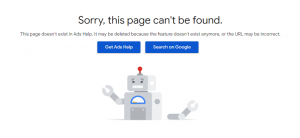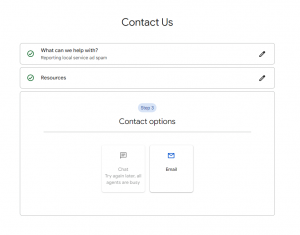What are LSAs
When a personal injury lawyer calls me and asks for the fastest way to get more clients, I always recommend Local Service Ads (LSAs), also known as Google Screened. If you haven’t heard about LSAs, they are Google’s relatively new Pay Per Call service that displays at the top of the search results page when someone Googles for a personal injury lawyer/car accident lawyer/bicycle accident lawyer/etc.
When a prospective client clicks on the LSA, they can immediately call the law firm. Google is able to track the call and charge for every lead generated. What makes LSAs more appealing than the traditional ad, other than the top placement on the page, is the ability to dispute calls that aren’t relevant to the law firm’s core practice.
Every call that comes through LSAs is recorded so that the law firm can listen to the call afterward and dispute it if it doesn’t align with the law firm’s services. For example, if a prospective client calls a personal injury firm about a civil case, the law firm can dispute the call and be reimbursed.
The dispute function means that the law firm isn’t wasting money on an ad that isn’t converting callers into clients.
Fake LSA Accounts
Since LSAs produce such a great ROI, many law firms try to dominate the LSA landscape by creating fake accounts that all direct to the same law firm. There are a few unethical strategies that they use to hog more than their fair share of the listings.
Fake Law Firm Names
When getting an LSA account onboarded, Google puts law firms through a rigorous verification process. Law firms are required to present documents to verify their existence, proof of good standing with the state bar, pass a background check, and a few other identity confirmation hoops.
However, the vetting process doesn’t cover changes after the LSA account is established. Some lawyers have taken advantage of this oversight and change their business names after they have been established. So, Joe Schmoe Law Firm can change its name to “5 Star Personal Injury Firm” in an attempt to capture more attention. Fortunately, this tactic doesn’t seem to work, and we are seeing less of this cheesy approach.
Multiple LSA Accounts for the Same Law Firm
A more sophisticated approach to cheating the LSA system is creating multiple LSA accounts for the same law firm. While Google doesn’t allow a single law firm to have multiple accounts that point to the same address, unethical law firms have found another loophole. They have individual lawyers from their firms create unique LSA accounts.
The individual accounts are often made to look like legitimately different businesses. They use individual lawyer pictures and create dummy websites to create a facade of an individual practice. However, with a quick glance at LinkedIn, you can easily see that they are all working for the same law firm.
These practices violate Google’s Terms of Service. They create unfair marketing conditions for legitimate law firms that are playing by the rules. However, Google doesn’t have the resources to take a deep dive into each law firm’s listing…unless it is reported.
How to Report Fake LSA Accounts to Google
Seeing as Google is a huge company that strives to provide the most accurate information to customers at all times, you would think they would extend that diligence to LSA fraud. Not so much. In fact, reporting falsified LSA accounts is difficult if you don’t know where to go.
When you see a fake account, you can click on their listing to be taken to their profile page. Buried in almost illegible font under the “At this business” section is some clickable text that says, “Report inaccurate info.”

While this link USED to take you to a portal where you could report the fake accounts, it now displays as a broken link. Google is hopefully addressing the issue and has taken down the reporting issue to enhance it and focus on removing fake LSA accounts. Time will tell.

In the meantime, you can venture over to the generic Local Service Ads Help page and report the issue. Since this is the page used for all Local Service Ads support, you will need to fill in the information yourself.
There are two ways of going about this.
- You can write in as your law firm and complain about the fake, SPAM lawyer listings. You can then threaten to remove your LSA listings until they clean up the SPAM problems. This approach is good because it hits Google in the pocket.
- You can write in as a consumer who is upset by the misleading business information. You can threaten to share the information with others so that they are aware of the problem. This approach is good because it hits Google’s credibility – which is their leading edge over other search engines.
Either way, it will try to direct you to other resources before giving you contact options. One option is a chat feature where nobody is available to chat. The other option is to email them. When you send an email, be sure to provide detailed information on who the fake accounts are, how you know they are fake, and screenshots/page snips of your evidence.

How Google Responds to Fake LSA Accounts
As you can see, Google doesn’t make it super easy to report fake LSA accounts. They are equally unhelpful in responding to the accounts. They have removed the ability to directly report the fraud. They don’t offer chat support for reporting the claims. And they tend to not respond quickly to the reports.
However, the more times the problem is reported, the more likely they are to resolve it. Additionally, the more lawyers who threaten to remove their LSA accounts and the more customers who share the information, Google will be forced to acknowledge how unethical these bogus accounts are. Google is aware of this issue and will hopefully take appropriate action to create a fair playing field for all lawyers who want to use this great (in theory) advertising channel.




Leave a Reply